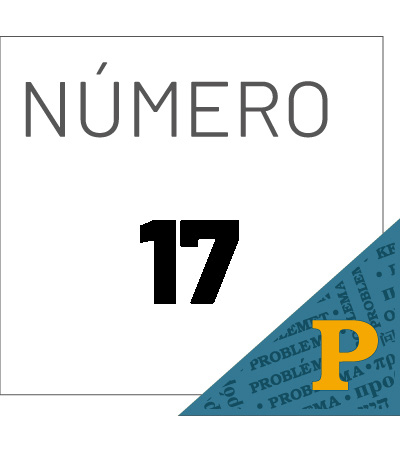Refugeehood Reconsidered: The Central American Migration Crisis
Contenido principal del artículo
Resumen
El número de refugiados en el mundo asciende a más del 1% de la población mundial total. Este ensayo es un esfuerzo por reflexionar sobre esta cuestión y evaluar la literatura que la discute, especialmente desde el punto de vista de la ética y la teoría política, con base en los problemas del mundo real. El artículo busca ofrecer una discusión introductoria para aquellas personas interesadas en los debates en torno a quién debería calificar para el estatus de refugiado, en especial a la luz del predicamento de personas centroamericanas que huyen del desorden. Se presta especial atención a la afirmación de que Estados Unidos tiene obligaciones de reparación hacia los países centroamericanos debido a sus políticas intervencionistas.
Detalles del artículo
Uso de licencias Creative Commons (CC)
Todos los textos publicados por Problema. Anuario de Filosofía y Teoría del Derecho sin excepción, se distribuyen amparados bajo la licencia CC-BY-NC-ND 4.0 Internacional; que permite a terceros utilizar lo publicado, siempre que mencionen la autoría del trabajo y a la primera publicación en este Anuario.
Accesibilidad a los artículos y demás publicaciones de manera total o parcial bajo el concepto de copia, distribución, comunicación pública, acceso interactivo (por internet u otros medios), manteniendo de manera explícita el reconocimiento al autor o autores y a la propia revista (reconocimiento de autoría).
Advertencia de que si se remezcla, modifican los artículos o se emplean fragmentos en otras creaciones, no se puede distribuir el material modificado, ni tampoco se permite reconstruir versiones a partir de los artículos originales publicados (obras derivadas).
Se prohíbe el uso de contenidos de los artículos publicados, total o parcialmente, con fines lucrativos (reconocimiento no comercial).
Consúltese https://creativecommons.org/licenses/by-nc-nd/4.0/
Citas
Achiume, E. T. (2019) Migration as Decolonization. Stanford Law Review, 71, 1509.
Blake, M.I., (2020) Justice, Mercy, and Migration, Oxford, chapter 6.
Buxton, R. (2019), “Reparative Justice for Climate Refugees,” Philosophy 94, pp. 193-219.
Camacho-Beltrán, E. (2022). A Just Public Charge Rule in VEREA Mónica y TIGAU Camelia (eds.), Trump’s Legacy in Immigration Policy Postpandemic Challenges for Biden (pp. 159-188). México: CISAN-UNAM.
Carens, J. H. (1991), “Refugees and States: A Normative Anaylis,” Canadian and American Refugee Policy, York Lanes Press, pp. 18-29.
Cherem, M, (2016), “Refugee Rights: Against Expanding the Definition of a Refugee´and Unilateral Protection Elsewhere” Jrnl Pol Phil, p.186.
Easterly, W. (2006). The White Man’s Burden: Why the West’s Efforts to Aid the Rest Have Done So Much Ill and So Little Good, Penguin.
Ferracioli, L. (2022). Liberal Self-Determination in a World of Migration, Oxford UP.
Gibney, M. J. (2018), “The Etics of Refugees”, Philosophy Compass, pp. 1-9.
Haddad, E. (2008), The Refugee in the Internacional Society: Between Sovereigns, Cambridge Studies in International Relations, Series Number 106.
Lister, M. (2013), "Who Are Refugees?" Law and Philosophy 32 (5):645-671, 660.
Lister, M. (2008), “Gang-related asylum claims: an overview and prescription,” The University of Memphis Law Review, Vol. 38(4), p. 827
Lister, M. (2004), “Who Are Refugees,” 660, citing Gibney, M. J., The Ethics and Politics of Asylum: Liberal Democracy and the Response to Refugees, Cambridge UP 2004, and see chapters 3-6.
Macedo ST. (2004). “What Self-Governing Peoples Owe to One Another: Universalism, Diversity, and The Law of Peoples,” Fordham Law Review, Special Symposium Issue on Rawls and the Law, 72, pp. 1721–38.
Miller, D. (2016), Strangers in Our Mist. The Political Philosophy of Inmigration, p. 80.
Montero, J. (2022) Human Rights as Human Independence: A Philosophical and Legal Interpretation, University of Pennsylvania.
Owen, D. (2020), What do We Owe to Refugees? Cambridge.
Passel J, D´Vera, C, González-Barrera, A. (2012), Net Migration from Mexico Falls to Zero – and perhaps less, Pew Hispanic Center Report, Washington, DC.
Rawls, J. (2019) The Law of Peoples, Harvard UP: 1999; Stilz, A., Territorial Sovereignty: A Philosophical Exploration, Oxford.
Shacknove, A. (1985), “Who is a Refugee?”, pp. 274-284.
Schenoni, L. and Mainwaring, S. (2018), “US Hegemony and Regime Change in Latin America,” Democratization 26, p. 272.
Villarreal, A. (2014), “Explaining the Decline in Mexico- U.S Migration: The Effect of the Great Recession.”
Villegas, P. (2019) “A Record Wave of Lone Child Migrants, Born of Desperation”. The New York Times, p. A7.
Walzer, M. (1983) Spheres of Justice: A Defense of Pluralism and Equality, chapter 2, Membership.





















